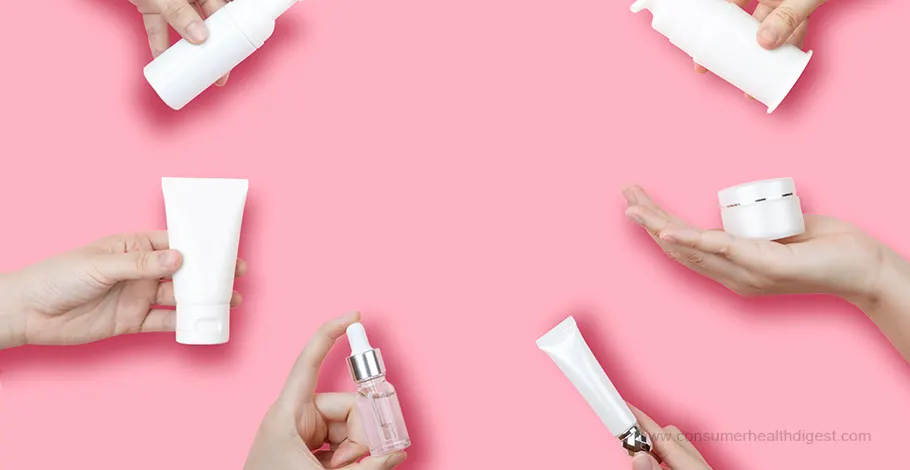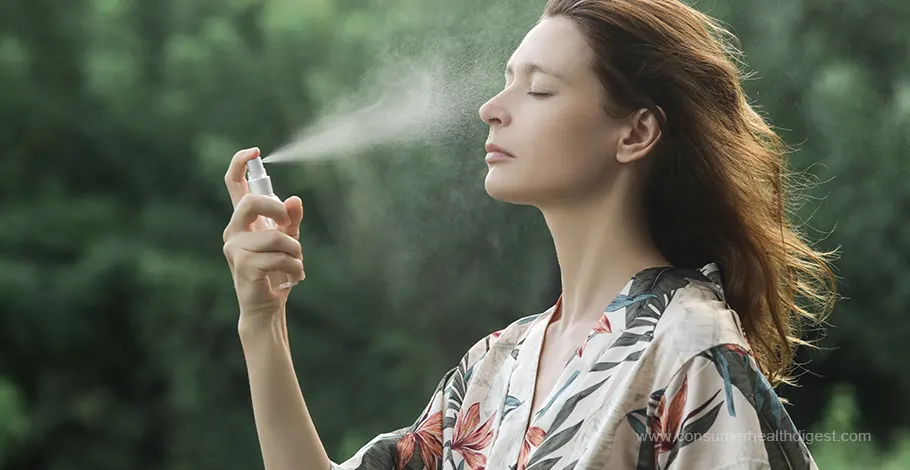Introduction:
In the realm of skincare, the mention of alcohol often sparks a range of reactions. However, it’s crucial to recognize that not all alcohols are the same, particularly in skincare products.

Understanding the role and effects of alcohol in skincare is essential for consumers dedicated to maintaining healthy skin. This article aims to clarify the concept of alcohol in skincare formulations, shedding light on its types, benefits, drawbacks, and effective identification in products. [1]
Types of Alcohol in Skincare:
Skincare formulations may contain various alcohols, each with distinct properties and effects on the skin. Generally, these can be classified into two categories: fatty alcohols and simple alcohols.
Fatty Alcohols:
- Examples include cetyl, stearyl, and cetearyl alcohol.
- These alcohols are beneficial for the skin, providing hydration and supporting the integrity of the skin barrier.
- Fatty alcohols are commonly found in moisturizers and emollient-rich skincare products. [2]
Simple Alcohols:

Ethanol and Isopropyl Alcohol. Shutterstock Image
- Examples include ethanol and isopropyl alcohol.
- Simple alcohols can have drying effects on the skin but are valued for their antiseptic properties.
- They are often used in skincare formulations as solvents or for their astringent qualities.
Understanding the distinction between fatty and simple alcohols is crucial for consumers in selecting skincare products tailored to their skin’s needs and preferences. While fatty alcohols contribute to skin hydration and barrier function, simple alcohols may be more suitable for specific purposes such as cleansing or disinfection. It’s important for individuals to consider their skin type and concerns when choosing products containing alcohol. [3]
Benefits of Alcohol in Skincare:

Benefits of Alcohol in Skincare. Shutterstock Image
Despite the controversies surrounding alcohol in skincare formulations, it can provide several benefits. For instance, it acts as a preservative, prolonging the product’s shelf life. Furthermore, certain types of alcohol can enhance the penetration of other active ingredients into the skin, thereby increasing the product’s efficacy.
Preservative Properties:
- Alcohol acts as a preservative in skin care products, helping to prolong their shelf life.
- By preventing the growth of harmful microorganisms, alcohol helps maintain the product’s integrity and safety over time.
Enhanced Ingredient Penetration:
- Certain types of alcohol can enhance the penetration of other active ingredients into the skin.
- By increasing the permeability of the skin barrier, alcohol facilitates the delivery of beneficial compounds, thereby enhancing the product’s efficacy.
Improved Product Texture:
- Alcohol can contribute to the texture and feel of skincare formulations.
- In some cases, alcohol may help products to spread more easily and absorb quickly into the skin, providing a smoother application experience.
Reduced Greasiness:
- Alcohol can help reduce the greasiness or heaviness of skincare products.
- By promoting faster evaporation, alcohol can create a lighter, more comfortable feel on the skin, particularly in formulations with higher oil content.
Potential for Oil Control:
- In products designed for oily or acne-prone skin, alcohol may help control excess oil production.
- By acting as an astringent, alcohol can help remove excess oil and impurities from the skin’s surface, promoting a clearer complexion.
Drawbacks of Alcohol in Skincare:
While alcohol in skincare offers potential benefits, its negative effects on the skin are a cause for concern. According to study, concentration of alcohol can result in dryness, irritation, and sensitivity, particularly among individuals with dry or sensitive skin types. It’s imperative to understand these implications to make informed skincare decisions. [4]
Identifying Alcohol in Skincare Products:
Consumers should be equipped with the knowledge to identify alcohol in skincare products effectively. Reading product labels and recognizing common names for alcohol derivatives can aid in this process. Being aware of alcohol content allows consumers to make informed choices aligned with their skincare needs and preferences.
Tips for Alcohol-Free Skincare:
-
Prioritize Ingredient Awareness:
-
Embrace Natural Soothing Ingredients:
-
Opt for Gel-Based Formulations:
-
Consider Hypoallergenic Options:
-
Patch Test New Products:
-
Explore Moisturizing Solutions:
When opting for alcohol-free skincare, prioritize understanding the ingredients listed on product labels. Look for formulations that explicitly state they are alcohol-free or devoid of alcohol derivatives like ethanol or isopropyl alcohol.
Explore skincare products enriched with natural, soothing ingredients that nourish and replenish the skin without the need for alcohol. Ingredients such as aloe vera, chamomile extract, green tea, and hyaluronic acid offer gentle hydration and calming effects.
Gel-based skincare formulations provide lightweight hydration without the use of alcohol. They absorb quickly into the skin, leaving it feeling refreshed and hydrated without any greasy residue. Look for alcohol-free gel cleansers, moisturizers, and serums for a gentle skincare routine. [5]
Choose hypoallergenic skincare products specifically formulated for sensitive skin types. These products are free from common allergens and irritants, including alcohol, fragrance, and harsh chemicals, reducing the risk of irritation or adverse reactions. [6]
Before incorporating new alcohol-free skincare products into your routine, perform a patch test to assess their compatibility with your skin. Apply a small amount of the product to a discrete area of skin and monitor for any signs of irritation or sensitivity over 24-48 hours.
Hydration is essential for maintaining healthy skin, especially for individuals with sensitive or dry skin. Look for alcohol-free moisturizers enriched with humectants like glycerin and ceramides, which help lock in moisture and strengthen the skin barrier.
Pros and Cons of Alcohol Skincare Products:

Is Alcohol in Skincare Good or Bad. Shutterstock Image
Pros:
- Effective as a Preservative: Alcohol acts as a preservative in skincare products, extending their shelf life and preventing bacterial growth.
- Enhances Product Absorption: Certain alcohols can help other active ingredients penetrate the skin more effectively, boosting the product’s efficacy.
- Controls Oil Production: Alcohol-based products can help control excess oil on the skin’s surface, making them suitable for oily or acne-prone skin types.
- Provides a Lightweight Feel: Alcohol can give skincare products a lightweight texture, making them feel less greasy and more comfortable on the skin.
Cons:
- Drying Effect: Alcohol can strip the skin of its natural oils, leading to dryness, irritation, and dehydration, especially for individuals with sensitive or dry skin. [7]
- Potential Irritation: Alcohol-based products may cause irritation, redness, and sensitivity, particularly when used in high concentrations or on compromised skin barriers.
- Disruption of Skin Barrier: Prolonged use of alcohol-based skincare products can disrupt the skin’s natural barrier function, leading to increased sensitivity and vulnerability to environmental aggressors.
- Not Suitable for All Skin Types: Individuals with sensitive, dry, or compromised skin may find alcohol-based products too harsh and irritating, exacerbating existing skin concerns.
Conclusion:
In conclusion, understanding the role of alcohol in skincare is essential for navigating the vast array of skincare products available in the market. While alcohol can offer benefits such as preservation and enhanced efficacy, it’s crucial to be mindful of its potential drawbacks. By making informed choices and exploring alcohol-free alternatives, consumers can prioritize skin health and achieve their skincare goals effectively.
7 Sources
We review published medical research in respected scientific journals to arrive at our conclusions about a product or health topic. This ensures the highest standard of scientific accuracy.
[2] Purnamawati S, Indrastuti N, Danarti R, Saefudin T. The Role of Moisturizers in Addressing Various Kinds of Dermatitis: A Review. Clin Med Res. 2017 Dec;15(3-4):75-87. doi: 10.3121/cmr.2017.1363. Epub 2017 Dec 11. PMID: 29229630; PMCID: PMC5849435.
[3] Kanikkannan N, Singh M. Skin permeation enhancement effect and skin irritation of saturated fatty alcohols. Int J Pharm. 2002 Nov 6;248(1-2):219-28. doi: 10.1016/s0378-5173(02)00454-4. PMID: 12429475.
[4] Lachenmeier DW. Safety evaluation of topical applications of ethanol on the skin and inside the oral cavity. J Occup Med Toxicol. 2008 Nov 13;3:26. doi: 10.1186/1745-6673-3-26. PMID: 19014531; PMCID: PMC2596158.
[5] Bianchini JM, Zhang Q, Hanna G, Flach CR, Wang H, Southall MD, Mendelsohn R, Randhawa M. A unique gel matrix moisturizer delivers deep hydration resulting in significant clinical improvement in radiance and texture. Clin Cosmet Investig Dermatol. 2019 Apr 15;12:229-239. doi: 10.2147/CCID.S196110. PMID: 31114284; PMCID: PMC6489629.
[6] Heinicke IR, Adams DH, Barnes TM, Greive KA. Evaluation of a topical treatment for the relief of sensitive skin. Clin Cosmet Investig Dermatol. 2015 Jul 27;8:405-12. doi: 10.2147/CCID.S87509. PMID: 26251625; PMCID: PMC4524272.
[7] Lachenmeier DW. Safety evaluation of topical applications of ethanol on the skin and inside the oral cavity. J Occup Med Toxicol. 2008 Nov 13;3:26. doi: 10.1186/1745-6673-3-26. PMID: 19014531; PMCID: PMC2596158.








 This article changed my life!
This article changed my life! This article was informative.
This article was informative. I have a medical question.
I have a medical question.
 This article contains incorrect information.
This article contains incorrect information. This article doesn’t have the information I’m looking for.
This article doesn’t have the information I’m looking for.